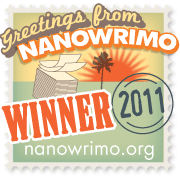This week we have a real treat in the form of a guest post from published author Lil Chase. We have a bit about her new book Secrets, Lies & Locker 62, as well as her top tips and writing secrets.
At Mount Selwyn High School the students write down their secrets and post them into a locked locker – locker 62. When new girl Maya is accidentally allocated locker 62, suddenly she has access to everyone’s deepest darkest secrets.
If knowledge is power, Maya is now the most powerful girl in school.
The question is, should she use her powers for good or evil?
Lil Chase’s writing secrets
Fiction is all about secrets: What they are. Who has them. When those secrets are revealed, and to whom. Never more so than my latest book – Secrets, Lies & Locker 62.
But there are secrets to writing fiction too. All writers know (or should know) about show, don’t tell, having likeable-yet-flawed protagonists, the inciting incident etc etc. These are the foundations of good writing and I firmly believe in them. But this blog post is a little different. These are the writing devices I keep to myself. The benchmark I hold myself to. My personal writing secrets:
- Short chapters
I’ve been told by readers that my books are very fast paced, and they get through my books very quickly. I put this down to the short chapters, always ending on a cliffhanger. My first book, Boys For Beginners is 278 pages and 30 chapters long. Secrets, Lies and Locker 62 is 291 pages and 39 chapters long. You do the maths. 🙂
- Present tense
I was fifty pages into writing my third book and was finding it hard going. For some reason I had chosen to write in the past tense, and it turned out that was the problem. When I rewrote it in the present tense it got a lot easier. There is something distancing, something to do with the narrator knowing more that the reader that I don’t like about the past tense. With the present you are right with the protagonist as it happens… with the feeling that anything could happen.
Also, I hate writing, ‘Now I was…’ It sounds odd to me.
- If I wouldn’t say it out loud, I won’t write it down
I don’t think I have never said the words, ‘exclaimed,’ ‘retorted,’ ‘gingerly,’ or ‘felt tears pooling in my eyes,’ out loud. These phrases are only ever used in books, and they sound very authorial and self-conscious to me. (The exception to this rule is obviously historical fiction and fantasy, where the language can sound more lofty and yet still feel authentic).
- No journeys. No arrivals. No waking up.
Filmmakers have a derogatory term for journeys: shoe leather. Show the character arriving and the reader will take the journey as read. But then, do we even need the arrival? Show the character in the middle of the scene and the reader will take the arrival as read. Likewise, never start the scene with a character waking up: show them awake and we’ll assume they woke up at some point.
- A chapter is about something significant, then throw in a curveball.
This is how I structure scenes to make my books pacey. For example: chapter 25 of Locker 62 shows the first time Maya gets to hang out with the cool girl – Karmella – looking at secrets. Karmella phones a boy and asks him out for Maya, which is what Maya has wanted throughout the story. While Karmella is talking to him, Maya comes across a secret that her mother wrote – a secret about Maya’s biological father, and it knocks Maya for six. Too much going on is always better than too little, in my opinion.
Do you have any writing secrets you’re willing to share with the Limebirds?
Biography
Lil Chase is the author of two books; BOYS FOR BEGINNERS and SECRETS, LIES & LOCKER 62, both published by Quercus. She also works as a fiction editor for both children’s and adult books. Apart from a brief stint as a barmaid in the Disneyland Hotel Paris, Lil has lived in London her whole life.
If you would like to follow Lil, her twitter is: @lilchasewriter and if you are interested in buying this book, you can do so here. 




